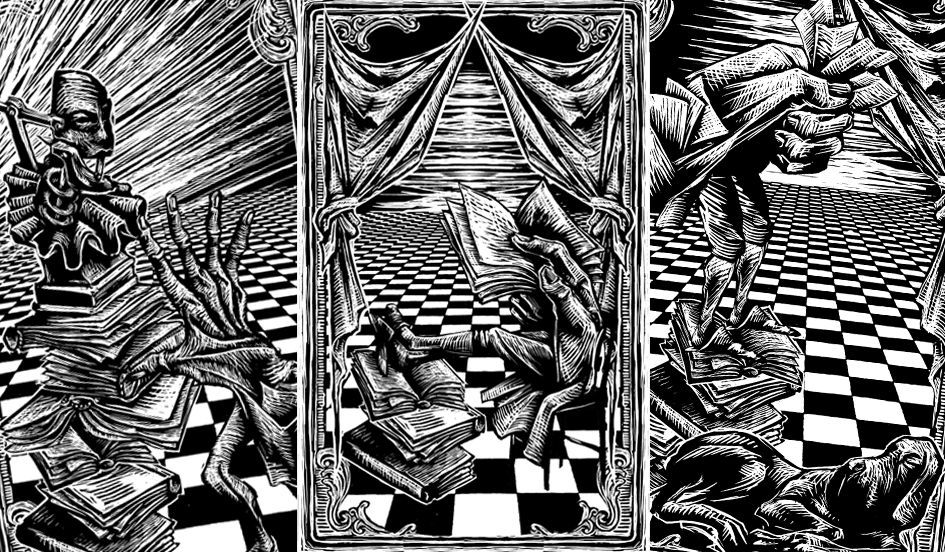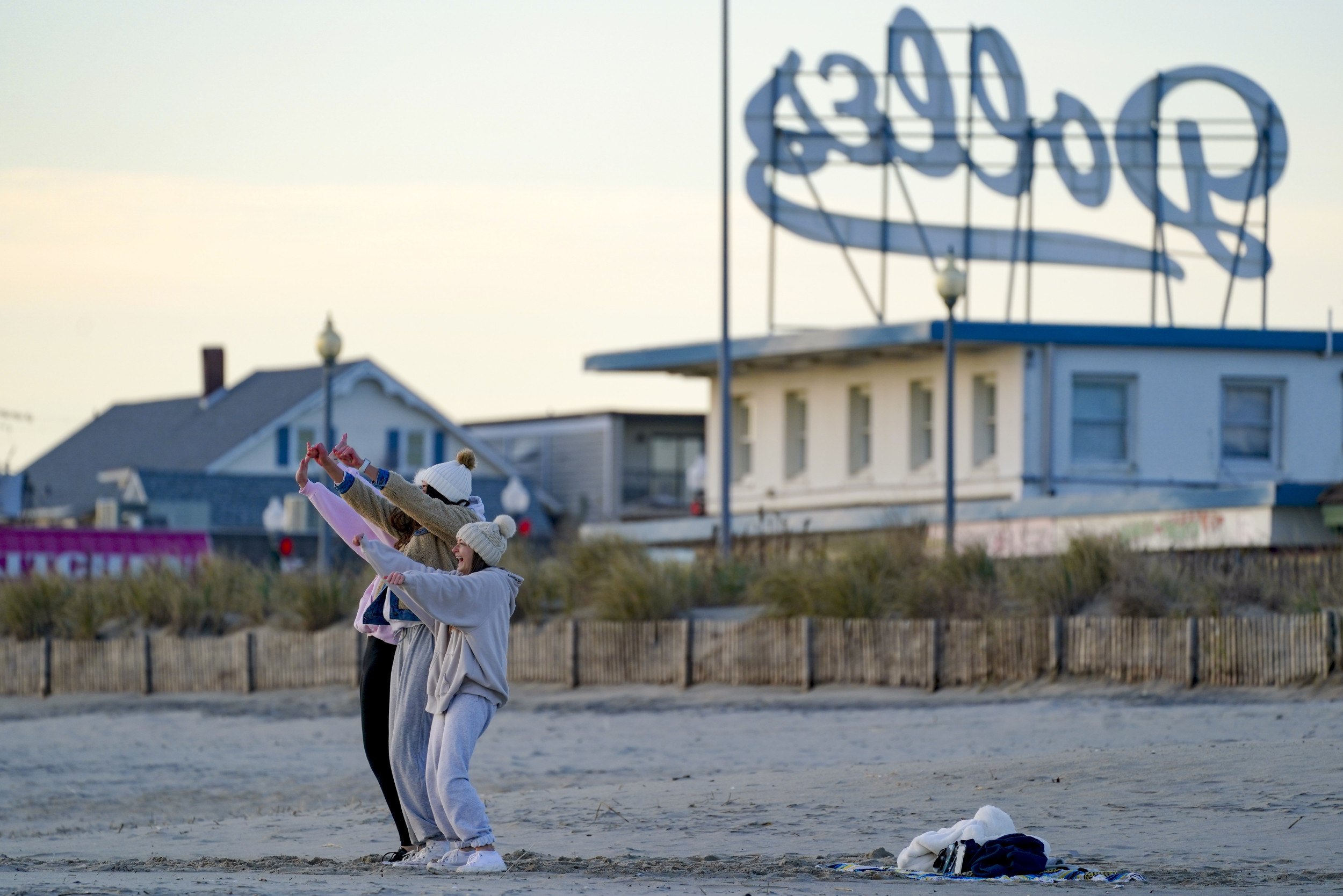
Picking up Don Quixote can be daunting, even for the biblio-inclined, and getting through its many hundreds of pages can be a heavy—not to mention lonely—task. But Ilan Stavans adores Miguel de Cervantes's four-century-old classic, and he'd like to share with everyone the wonder of diving into the quirky tale of a middle-aged gentleman who sets out on a mission to court adventure and destroy evil.
Stavans, a humanities professor at Amherst College and publisher of Restless Books, has chosen his favorite book of all time as the first in a new series of "Restless Classics" from his similarly named independent publisher. Brooklyn, New York-based Restless Books, which has been in operation since last fall, launched a Kickstarter campaign Monday to raise $20,000 to print a new edition of Don Quixote, with original woodcut illustrations by the artist Eko.
But the series, whose tag line is "an interactive encounter with great books and inspired teachers," doesn't stop at the physical volumes. For each classic it publishes, Restless Books will release several videos featuring a scholar (in this case, Stavans) helping readers navigate through the book. They'll give context, discuss characters and prepare readers for subsequent sections.
"I'm convinced that what we love when we read is not only the act of losing ourselves in the fantasy of the author but the capacity that we have to share that experience with others and talk about it," says Stavans, who is originally from Mexico.
He hopes the videos can provide new readers—or repeat readers who'd like to see the book with fresh eyes—with clues from someone who's read and reread the work many times over and devoted a great deal of time and thought to becoming an expert on a particular literary classic. The goal, though, is to accomplish this in "a casual way, conveying passion" rather than in a "snobby, pretentious lecture way," he says, "so readers coming to the book now can be infected with that passion."
The book itself will include an introduction from Stavans on Don Quixote and how the Restless Classics project is set up, a chronology of Cervantes's life and work, and a gallery of thoughts from authors and other figures about Don Quixote. The accompanying videos will be released periodically over the course of about four months, starting in October to coincide with the publication of the new volume. As the videos are being rolled out, Stavans will also host a live online book discussion each month.
Four Centuries Later
Stavans and Restless Books chose Don Quixote not only because the professor adores it (and teaches a course on it at Amherst) but also to celebrate the 400th anniversary of the complete work. Cervantes published the first part of his story in 1605 and followed up with the second part a decade later. Next year will also mark 400 years since the author's death, shortly after he finished what many consider the first modern novel.
"I think that there are two authors that really—I'm going to use the word invented—modernity. One of them is Shakespeare, and the other is Cervantes," Stavans says, explaining that the depth and complexity of emotions these two were able to convey, and the extent to which they understood the inner lives of their characters, was unprecedented. Many of their successors learned from them.
Patricia Manning, a professor at the University of Kansas who studies 17th century Spain, believes that what made the novel so popular upon its publication is "quite similar to what piques our interest today," pointing to attributes like the level of character development and a compelling narrative that can appeal to readers no matter what their favorite genre is.
"I think particularly the notion of Don Quixote himself: an aging man looking at life and not so happy...decides to remake himself. That's certainly the type of plotline [we] can relate to," says Manning, who is not involved in the Restless Classics project. "Also, the level of humor in the novel is really quite extraordinary."
The first part of Don Quixote saw an unusual number of reprints for a book published in 1605, Manning says, and has continued to engage readers and inspire artists. There are movies, paintings, operas, ballets, theatrical productions, cartoons, statues and books for children and adults that were inspired by Cervantes's novel. Even, Stavans says, a chain of discount stores in Japan (with three locations in Hawaii) and an asteroid with the name Don Quixote.
"I think it's about how this book captures people's imaginations. In all of us there's a dreamer who wants to fix the world," says Stavans, whose new book, Quixote: The Novel and the World, will be published in September, just prior to the Restless Classic release. In his cultural history of Cervantes's novel, he explores "the ways in which a work of literature is a living thing that influences and is influenced by the world around it."
"If you took Don Quixote out of Western civilization there would be a hole as deep and as complete as maybe taking out the moon," Stavans says.
After kicking off its Restless Classics series this year with Don Quixote, the independent publisher plans to follow up with three more books in 2016 and five in 2017. Though Restless Books is still discussing what will be the next titles in the series, some options it's considered for future publication are Robinson Crusoe by Daniel Defoe, Heart of Darkness by Joseph Conrad, Michel de Montaigne's essays, and more works in Spanish as well as Hebrew and other languages.
They'll choose a variety of classics, which Stavans defines as "astonishing works of literature that come from many countries" that are "able to speak to a diverse audience, represent universal values and offer a statement as to who we [are] as a civilization."
"My dream is it has no boundaries," Stavans says, alluding to his desire to go beyond English-language classics to those that come from Latin America, the Middle East, Asia and elsewhere, and identifying the audience he hopes to reach. The latter includes a college student, someone who has been meaning to tackle certain works since college, someone going on a cross-country trip who wants a literary travel companion, and a bona fide history buff.
When you're reading a classic, Stavans says, "you become aware that many, many people have read it before you, and many more will read it after you. You're part of a chain of readers that all coincide on the same page."
Uncommon Knowledge
Newsweek is committed to challenging conventional wisdom and finding connections in the search for common ground.
Newsweek is committed to challenging conventional wisdom and finding connections in the search for common ground.
About the writer
Stav is a general assignment staff writer for Newsweek. She received the Newswomen's Club of New York's 2016 Martha Coman Front ... Read more
To read how Newsweek uses AI as a newsroom tool, Click here.








